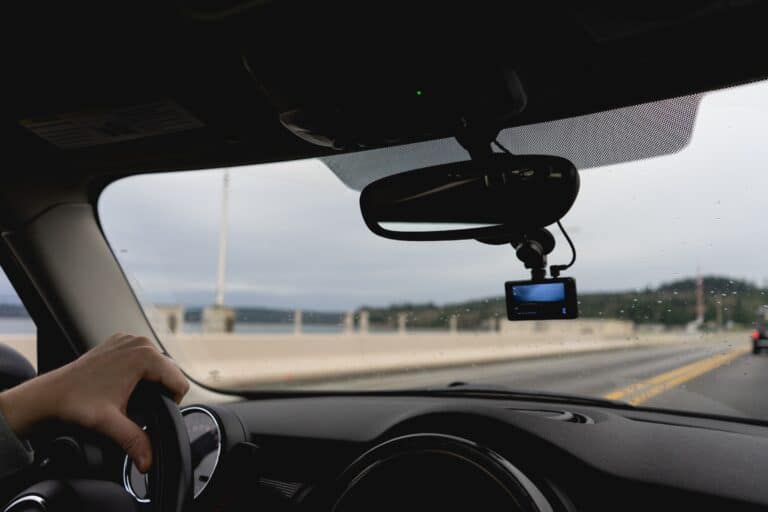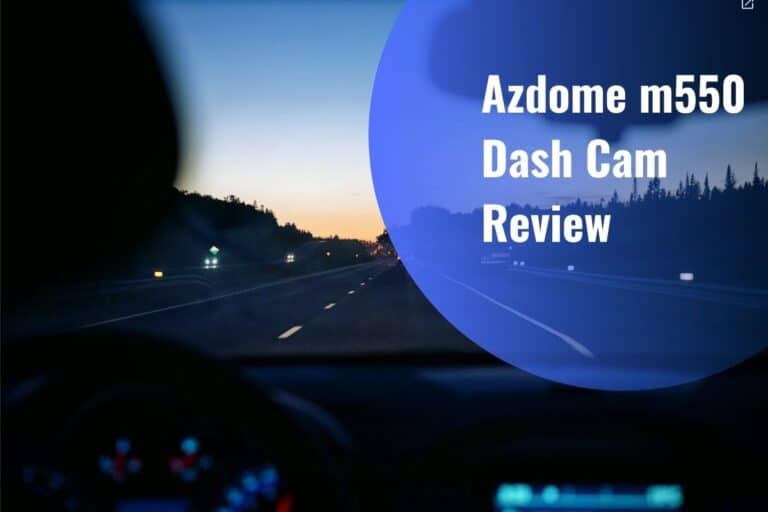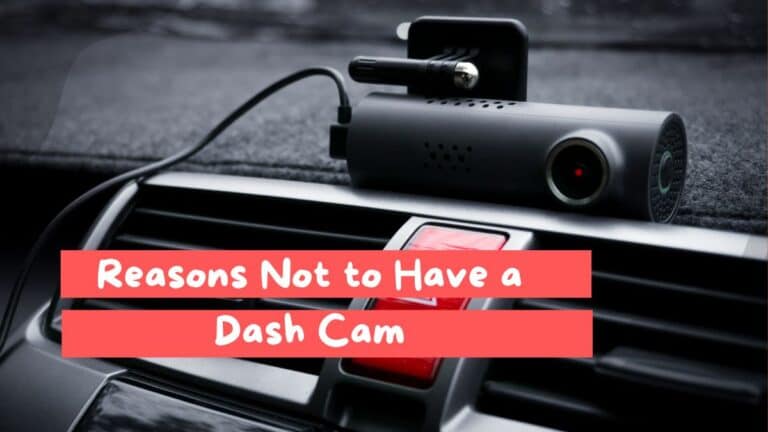Can You Report Reckless Driving With Dash Cam?
Do you ever find yourself witnessing reckless driving on the road and wonder if there is anything you can do about it? With the increasing popularity of dash cams, many drivers have started using these devices to capture incidents of dangerous driving. But can you actually report reckless driving with dash cam footage?
In this article, we will explore the legality of using dash cam footage as evidence, privacy concerns and consent issues, the admissibility of such footage in legal proceedings, and the effectiveness of reporting reckless driving incidents with dash cam footage.
When it comes to reporting reckless driving with dash cam footage, it’s important to understand the laws surrounding its use. Dash cams are legal in most jurisdictions as long as they adhere to certain regulations regarding mounting and positioning. However, while capturing video evidence may be legal, using that evidence for reporting purposes raises questions about privacy concerns and consent. It’s crucial to consider whether individuals captured in the footage have given their consent for their images or personal information to be shared or used in a public context.
Once you’ve ensured that your use of dash cam footage aligns with legal requirements and privacy considerations, another key aspect is determining whether such evidence would be admissible in a court of law. While laws regarding admissibility vary across jurisdictions, generally speaking, video evidence from a dash cam can be considered valid proof if it meets certain criteria like authenticity and reliability. However, it’s important to consult with legal professionals who can provide specific guidance based on your jurisdiction’s laws.
By understanding the legality behind using dash cam footage as evidence and navigating potential privacy concerns and consent issues appropriately, you can effectively report instances of reckless driving on our roads. Utilizing high-quality video recordings can significantly enhance your case when reporting dangerous behavior behind the wheel. Reporting these incidents not only helps hold those responsible accountable but also contributes towards ensuring road safety for everyone on our streets. So next time you witness unsafe driving behavior while armed with your trusty dash cam, you can take action and make a difference.
Legality of Using Dash Cam Footage as Evidence
Using dash cam footage as evidence in reporting reckless driving is a legal and effective way to hold drivers accountable for their dangerous actions. Many jurisdictions recognize the admissibility of dash cam footage in court, as long as it meets certain criteria. For example, the footage must be clear and unedited, and it must accurately depict the events that occurred.
By providing an unbiased record of what happened on the road, dash cam footage can help law enforcement authorities and insurance companies determine who was at fault in a reckless driving incident.
Dash cam footage can be especially valuable when reporting instances of reckless driving because it provides visual evidence that supports your claims. Instead of relying solely on your word against the other driver’s, you have tangible proof of their dangerous behavior. This makes it more difficult for them to deny responsibility or dispute the facts of the situation.
Additionally, using dash cam footage as evidence removes any ambiguity or potential bias from eyewitness accounts, ensuring a fairer assessment of the situation.
Read Also: Can You Get A Ticket From A Dash Cam?
Ultimately, by utilizing this technology to report reckless driving incidents, you contribute to creating safer roads for everyone while holding those who engage in dangerous behavior accountable for their actions.
Privacy Concerns and Consent Issues
By employing a dash cam, one must be mindful of potential privacy concerns and consent issues that may arise. While using a dash cam to report reckless driving can be an effective way to hold dangerous drivers accountable, it is important to consider the impact on others’ privacy.
Dash cams record video footage of public spaces, capturing not only the actions of other drivers but also pedestrians and nearby buildings. This raises questions about whether individuals have consented to being recorded and how their privacy rights are protected.
Privacy laws vary from country to country and even within different states or provinces. It is crucial to familiarize yourself with the specific regulations in your area before relying on dash cam footage as evidence or sharing it publicly. In some jurisdictions, recording video without consent may infringe upon individuals’ right to privacy, potentially leading to legal consequences for the person operating the dash cam.
Read Also: Do People Steal Dash Cams: 7 Ways to Keep It Safe
Additionally, if you plan on uploading or sharing any footage online, consider blurring or editing out identifying information of third parties who may be unintentionally captured in the recordings.
Overall, while using a dash cam can be beneficial in reporting reckless driving incidents, it is essential to navigate this technology responsibly by respecting others’ privacy rights and obtaining necessary consent where required. Being aware of your local laws regarding recording in public spaces will help ensure that you use your dash cam legally and ethically. Remember that understanding these considerations not only protects you from potential legal repercussions but also fosters a respectful environment for all individuals involved.
Admissibility of Dash Cam Footage in Legal Proceedings
To ensure the admissibility of dash cam footage in legal proceedings, it’s crucial to understand the rules and regulations surrounding its use.
Dash cam footage can be a valuable piece of evidence in cases involving reckless driving or other traffic violations. However, it’s important to note that simply having dash cam footage doesn’t guarantee its admissibility in court.
In order for dash cam footage to be considered admissible, certain criteria must be met. The footage should be clear and unaltered, showing the events as they occurred without any manipulation or tampering. Additionally, the person who recorded the footage should be able to testify that it accurately represents what happened at the time of the incident.
It’s also important to consider any relevant laws or regulations regarding privacy and consent when using dash cam footage as evidence.
Overall, while dash cam footage can provide valuable evidence in legal proceedings involving reckless driving, it is essential to adhere to the rules and regulations surrounding its use. By ensuring that the footage is clear and unaltered, and understanding any privacy concerns or consent issues involved, you can increase the chances of your dash cam footage being deemed admissible in court.
Remember that proper documentation and testimony may also play a crucial role in establishing the authenticity and reliability of your evidence.
Effectiveness of Reporting Reckless Driving Incidents with Dash Cam Footage
Capture the attention of law enforcement and hold reckless drivers accountable for their actions by providing them with compelling evidence through the use of dash cam footage. Dash cam footage has become an increasingly effective tool in reporting reckless driving incidents.
With high-quality video and audio recordings, dash cams provide clear evidence that can support your claims and help law enforcement take appropriate action against dangerous drivers. By capturing incidents such as excessive speeding, aggressive maneuvers, or disregarding traffic laws, you’re able to present a comprehensive picture of the reckless behavior on the road.
Not only does dash cam footage provide a visual account of the incident, but it also captures important details that might be overlooked by eyewitnesses or conveniently forgotten by those responsible for reckless driving. The footage allows authorities to see firsthand the dangerous actions taken by these individuals, enabling them to make informed decisions about how to handle the situation.
Additionally, submitting dash cam footage as evidence adds credibility to your report and strengthens your case against reckless drivers. It eliminates any doubts or uncertainties that may arise from conflicting testimonies or biased opinions. By presenting objective and undeniable proof through dash cam footage, you contribute to making our roads safer while ensuring that those who endanger others are held accountable for their actions.
Impact on Ensuring Road Safety
Ensure road safety and hold accountable those who endanger others by providing law enforcement with clear evidence through the use of dash cam footage.
Dash cams have become an invaluable tool in ensuring road safety as they capture real-time footage of reckless driving incidents. By recording these incidents, you can play a crucial role in making our roads safer for everyone.
When you report reckless driving with dash cam footage, you provide law enforcement with undeniable evidence that can be used to hold the responsible parties accountable. This visual proof allows authorities to accurately assess the severity of the offense and take appropriate action against the reckless driver. Whether it’s capturing instances of speeding, aggressive maneuvers, or dangerous lane changes, your dash cam footage provides an unbiased account of what transpired on the road. This objective evidence greatly strengthens any case against the offending driver and increases the chances of successful prosecution.
Moreover, reporting reckless driving incidents with dash cam footage not only helps ensure road safety but also acts as a deterrent for future offenses. When drivers know that their actions are being recorded and can potentially lead to legal consequences, they’re more likely to think twice before engaging in dangerous behavior on the road. This creates a ripple effect that contributes to overall safer driving habits within communities. By taking an active role in reporting reckless driving incidents using your dash cam footage, you’re actively participating in making our roads safer for all drivers, passengers, and pedestrians alike.
Providing law enforcement with clear evidence through dash cam footage is a powerful way to promote road safety and hold those who endanger others accountable for their actions. Your recordings serve as vital tools in strengthening cases against reckless drivers and act as a deterrent for future offenses. By actively reporting these incidents using your dash cam footage, you contribute to creating a safer environment on our roads for everyone involved. So keep your cameras rolling and help make a positive impact on ensuring road safety one video at a time.
Conclusion
In conclusion, reporting reckless driving incidents with dash cam footage can be a valuable tool in ensuring road safety. The legality of using dash cam footage as evidence may vary depending on the jurisdiction, but in general, it’s an accepted practice. Privacy concerns and consent issues should also be taken into consideration, and drivers should ensure that their use of dash cams complies with applicable laws.
When it comes to the admissibility of dash cam footage in legal proceedings, courts generally recognize its value as evidence. However, the weight given to this type of evidence may depend on various factors such as the quality and reliability of the footage, any potential editing or tampering of the video, and whether proper consent was obtained for recording.
While reporting reckless driving incidents with dash cam footage can be effective in holding irresponsible drivers accountable, it’s important to remember that it’s not a guaranteed solution. Other factors such as police response times and resources available for investigation also play a significant role in addressing these incidents.
Overall, utilizing dash cam footage can contribute to promoting safer roads by providing objective evidence that can support claims against reckless driving behaviors.






